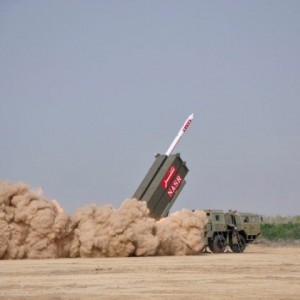I have blogged about dangers posed to nuclear power plants by war and civil disorder. I have also blogged about the problems of having nuclear weapons stored at an airbase in Turkey during the recent failed coup attempt and reports that at least some of them will be moved in order to reduce the danger. Today I am going to talk about the dangers to arsenals of nuclear weapons in other countries. The nine countries that have nuclear weapons would argue that they have physical safeguards and protocols that keep their nuclear weapons secure even in the face of outbreaks of domestic violence but I disagree.
Pakistan is one of the least secure countries that has nuclear weapons. There are multiple groups that are trying to overthrow the central government and that often resort to violence. A military installation that was reported to have nuclear weapon components has already been attacked. The Pakistanis are in the process of deploying tactical nuclear weapons to their border with India. These weapons will necessarily be less secure than those stored in major government weapons depots. If Islamic radicals can get their hands on nuclear weapons, they will probably try to detonate them.
North Korea is already of great concern because of the unstable and belligerent nature of its dictator who constantly threatens nuclear attacks against other nations. There are factions within the North Korean government that hold different positions with respect to the possible use of nuclear weapons. The dictator regularly purges member of the military command who he views as a threat to his rule. The situation is highly volatile to say the least. There is a real possibility of civil war or civil chaos during which the control of nuclear weapons might fall to factions which would consider their immediate use either internally or against neighbors.
China had nuclear weapons decades ago at the time of the Cultural Revolution that engulfed the country in chaos but they managed to maintain the security of those weapons. Today, millions of Chinese have taken to the streets in protest against official corruption and suppression of the Chinese people. There is definitely danger of civil disorder. The Chinese government has kept tight control of nuclear warheads up to this point but their plans for regular nuclear armed submarine patrols in the South China Sea would mean turning over control of warheads to the commanders of the submarines which would make them much less secure.
The Soviet Union had a huge stockpile of nuclear warheads during the Cold War. When the Soviet Union collapsed, the major nuclear weapons were kept secure. However, there were a lot of tactical nuclear weapons distributed around their member countries and not all of these have been accounted for. There is a real danger that some of these tactical nuclear weapons could fall into the hands of terrorists and/or rebels. There is already smuggling of Soviet and Russian nuclear materials going on in Georgia and Moldova which attracts terrorists interested in building dirty bombs.
Other major powers must have contingency plans for dealing with unsecured nuclear weapons in the event of the collapse of countries such as Pakistan and North Korea. One option would be to bomb the locations where nuclear weapons are stored if this is known. Even the danger of spreading nuclear materials caused by bombing might be preferable to functional nuclear weapons falling into the hands of terrorist or fanatics.
If the location of nuclear weapons is not known, then invasion and occupation would be another course of action however disagreeable, destructive, deadly and costly.
A third possible way of preventing the spread of nuclear weapons seized from government arsenals would be to try to quarantine the country. That would require blockades of all land, water and air travel out of that country which could be very difficult. If those who seized the nuclear warheads had delivery systems such as missiles at their disposal, then it would be difficult to defend neighboring countries against launch. Deployment of anti-missile systems might be necessary.
Until the world is free of nuclear weapons, these threats will exist and must be taken seriously.
Pakistani Nasr tactical nuclear weapon:
